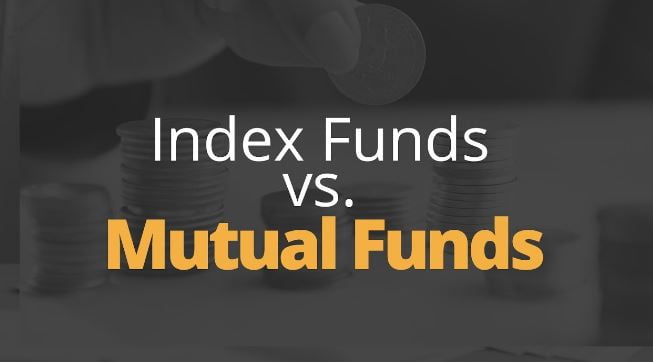You may consider them boring, but index funds are low-cost, low-maintenance funds designed to grow wealth at a slow and steady pace.
An index fund is a type of mutual fund that tracks the price fluctuations of larger indexes such as the Dow Jones Industrial Average and the S&P 500.
Putting your money in an index fund is a type of passive investing.
This means the investor will purchase an index fund with the intention of long-term growth and minimal portfolio maintenance.
With index funds, you get broad market exposure and low operating expenses accompanied by lower-than-average risk. You can, however, choose a high risk index fund if that fits your financial strategy.
Is your head hurting yet?
Let’s take a look at the difference between index funds and mutual funds.
Index Funds vs. Mutual Funds
Yes, an index fund is a type of mutual fund, but not every mutual fund is an index fund. Here are some details. Ordinary mutual funds are actively maintained by professional money managers. When you buy stock in a mutual fund, your money gets pooled together with everyone else that bought that same mutual fund.
Money managers assigned to your mutual fund actively buy and sell securities in an attempt to produce capital gains and income for the investors. This is considered active management because there is a person (the money manager) constantly deciding how to manage the portfolio, what to buy, and what to sell.
Index funds are like mutual funds because the investor buys a small slice of many different stocks. However, index funds are different from mutual funds because index funds try to replicate the index your fund is tracking instead of trading securities.
Many index funds rely on a computer simulated investment model with little or no human input when deciding which securities to purchase. This passive management style is the leading factor in decreasing the maintenance fees of index funds.
Don’t let the absence of a constant money manager scare you away from index funds. Remember that index funds are supposed to be a more simple form of mutual fund investing. Index funds track market performance and attempt to mirror its ebb and flow.
Are Index Funds Perfect?
No, index funds are not perfect. You’ll find no guarantees when it comes to any sort of stock market trading.
Here are some index fund pros and cons:
Pros
- Low costs for the consumer (you). It costs less to run an index fund because there are no highly-paid stock market analysts frequently trading securities.
- Simplicity. The objectives of index funds are relatively easy to understand. Pick a fund that targets an index you prefer and stick with it.
- Diversity. With your money in an index fund, your portfolio can achieve the accumulated benefit of hundreds of different stocks. Another benefit is that broad indexes almost always recover from downturns.
- Tax efficiency. Since index funds don’t trade much throughout the year, investors usually don’t have to pay much in capital gains taxes.
Cons
- Tracking errors. By its nature, mirroring the index cannot be 100% accurate. The difference between actual index performance and the index fund is known as “tracking error”. It can create an unexpected profit or loss (and the con is the loss, obviously).
- Will not outperform. An index fund attempts to match the index it is tracking, and by design, even the best index funds cannot outperform their actual index.
- Boring. For some people, a slow and steady pace isn’t fast and exciting enough; even when they’re making money.
What To Do
Look long enough and you will be able to find qualified professionals telling you to only trade in index funds, or keep away from them altogether. What you need to do is educate yourself about index funds. Become saturated with stock market education and the different types of investment opportunities. Research as much as possible and invest in the stock market in whatever way best fits your financial goals and your lifestyle.

Pingback: Best Vanguard Funds To Invest In - Debt Free To Early Retirement